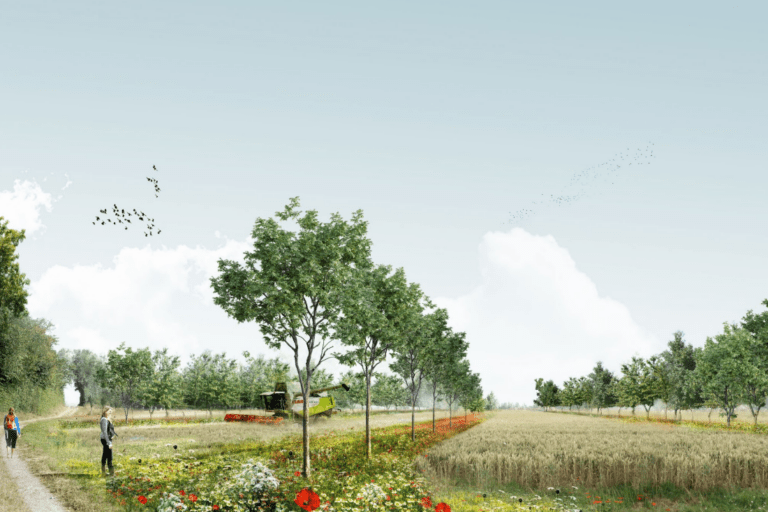“The Netherlands is under immense pressure to make radical changes to cut harmful emissions, and some farmers fear their livelihoods will be obliterated.” [BBC news]
“As extreme political forces seek to leverage the green transition for their own ends, the stakes are huge. In farming, as with car manufacturing and in other industries, meaningful progress towards net zero will only come if those at the sharp end are persuaded to come on board for the journey.” [Guardian]
.
Agriculture is responsible for large amounts of greenhouse gas emissions – especially nitrous oxide and methane: Greenhouse gas emissions from agriculture – Wikipedia
And yet there is good news, as reported by the UK government last year:
- All agricultural greenhouse gas (GHG) emissions decreased between 1990 and 2020.
- From 1990 to 2020, emissions intensity from cattle, dairy and pigs have decreased. For sheep, emissions have remained the same.
- The 2022 Farm Practices Survey (FPS) indicated that 64% of farmers thought it important to consider GHGs when making farm business decisions, whilst 29% considered it not important.
Agri-climate report 2022 – GOV.UK
However, meanwhile in Holland, the farming community feel very let down by their government:
This proud farming nation is under immense pressure to make radical changes to cut harmful emissions, and some farmers fear their livelihoods will be obliterated. “It’s in our blood, I want to do this, and if we have to adapt to new situations, I want to, but we have to be fair, it takes time – give me a chance,” says Geertjan Kloosterboer, a third-generation dairy farmer. Dutch government proposals for tackling nitrogen emissions indicate a radical cut in livestock – they estimate 11,200 farms will have to close and another 17,600 farmers will have to significantly reduce their livestock. Other proposals include a reduction in intensive farming and the conversion to sustainable “green farms”. As such, the relocation or buyout of farmers is almost inevitable, but forced buyouts are a scenario many hope to avoid. The cabinet has allocated €25bn (£20bn) to slicing nitrogen emissions within the farming industry by 2030… Why Dutch farmers are protesting over emissions cuts – BBC News
Last week they won a considerable voice against that of the government: Dutch farmers’ party secures landslide victory – The Post
The ‘libertarian’ site Spiked calls it a ‘fight back against the green elite’s campaign of immiseration’: Why the Dutch farmers’ revolt matters – spiked and Dutch voters are rising up against elite eco-mania – spiked
In other words, this seems to be backfiring as much as the ‘carbon tax’ introduced in France in 2018 – which simply put up the cost of petrol for the rural poor and set off the first wave of Gilets Jaunes: Macron’s Climate Tax Is a Disaster

As the Guardian says about the movement in the Netherlands:
As extreme political forces seek to leverage the green transition for their own ends, the stakes are huge. In farming, as with car manufacturing and in other industries, meaningful progress towards net zero will only come if those at the sharp end are persuaded to come on board for the journey. The Guardian view on Dutch farmer protests: a European test case | Editorial | The Guardian
There are perhaps less drastic ways forward which could be explored: For Dutch farming crisis, agroforestry offers solutions: Q&A with Lennart Fuchs & Marc Buiter and Dutch farmers revisit ancient techniques as they adapt to climate change
Finally, there is indeed a problem with ‘net-zero carbon’ – but not necessarily as seen by the conspiratorial climate change denialists: The great Net Zero lie – UnHerd Nor from climate appeasers such as Bjorn Lomborg, who provide excuses for not doing anything much: WHAT’S WRONG WITH NET ZERO? It’s based on a fallacy of a crisis while innovation is best path forward | FarmersForum.com
Rather, whilst ‘net-zero carbon’ could indeed be cast as a ‘lie’, it’s because the proposal is basically ‘burn now, pay later’, as Exeter University Prof James Dyke notes: “There is no such thing as zero carbon or even ‘net’ zero.” – Vision Group for Sidmouth Or, he would also say, it’s essentially ‘greenwashing’: “The idea of net zero carbon is a dangerous trap” – this is greenwashing – Vision Group for Sidmouth
In other words, we very much need to be reducing our greenhouse gases in agriculture – but the politicians need to be much much better at making it clear why and how…